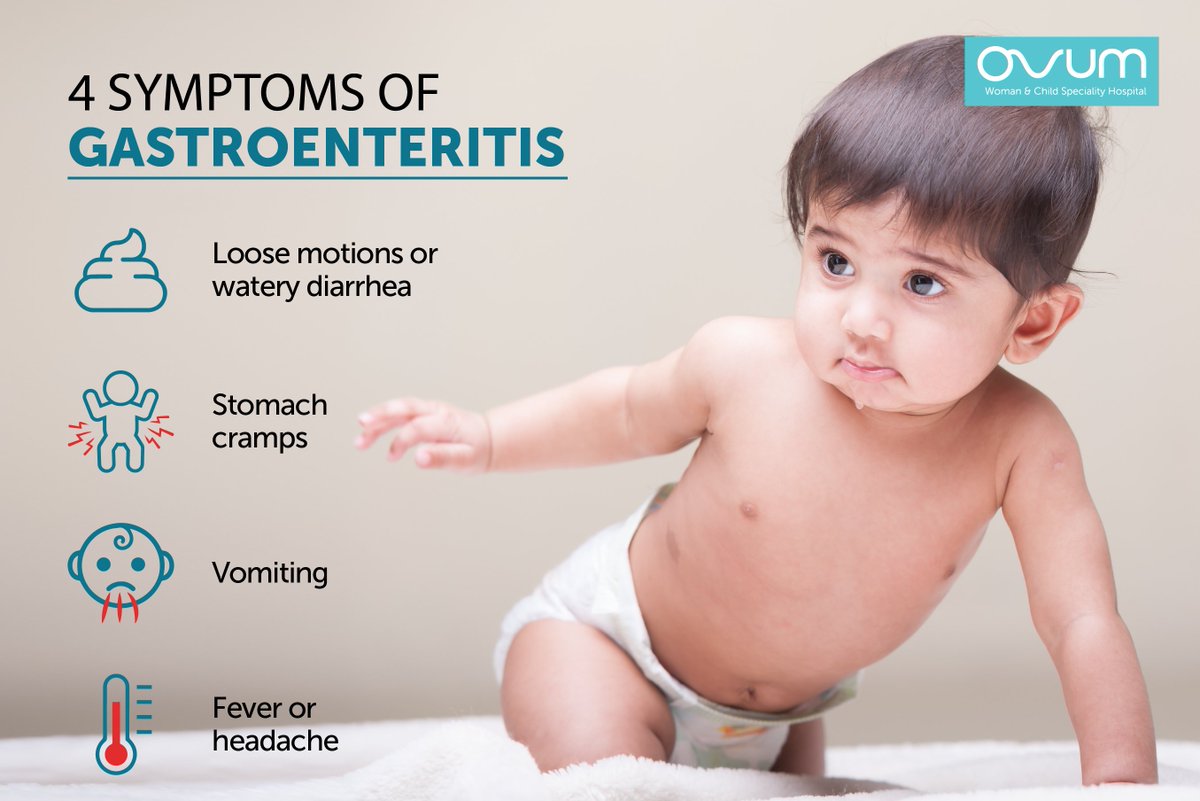
Stomach flu or gastroenteritis is an inflammation of the lining of the digestive tract. Gastroenteritis in Pregnancy Information in this leaflet is general in nature and should not take the place of advice from your health care provider.
Severe gastroenteritis causes dehydration and an imbalance of blood chemicals electrolytes because of a loss of body fluids in the vomit and stool.
Gastroenteritis in baby. Gastroenteritis - management of babies and children Gastroenteritis is a common illness in infants and young children. It usually causes frequent loosewatery bowel motions diarrhoea and often vomiting. Most children with gastroenteritis can be safely managed at home with advice and support from a healthcare professional if necessary.
Gastroenteritis is an infection that inflames the digestive tract lining. Symptoms of gastroenteritis in babies may include abdominal pain achiness vomiting fever diarrhea and chills. These symptoms may be mild or severe and could last for hours or days.
The most common cause of gastroenteritis is infection from viruses like rotavirus. If your baby has gastroenteritis be especially careful to wash your hands after changing nappies and before preparing serving or eating food. Ideally use liquid soap in warm running water but any soap is better than none.
Dry your hands properly after washing. For older children whilst they have gastroenteritis the following are recommended. According to the NHS a baby with gastroenteritis may experience vomiting that clears up quickly and brownish-greenish watery stool diarrhea that lasts more than a week.
There may be a mild fever too. NHS further adds that a baby with bacterial gastroenteritis will show the following symptoms. A higher and long-lasting fever.
Management of Acute Gastroenteritis. Gastroenteritis is a common paediatric condition. Appropriate management attempts to avoid dehydration but when this occurs appropriate fluid management is essential.
For rehydration the enteral route is preferred but if intravenous fluids are used then low. Mild gastroenteritis in children can be managed at home. Oral rehydration therapy such as providing half-strength apple juice followed by the childs preferred liquids is the mainstay of.
Stomach flu or gastroenteritis is an inflammation of the lining of the digestive tract. If your baby toddler or young child has gastroenteritis she may have diarrhea vomiting abdominal pain fever chills and achiness. Her symptoms may be mild or severe and they may last for just a few hours or for days depending on the cause.
Gastroenteritis sometimes incorrectly called stomach flu is the most common digestive disorder among children. Severe gastroenteritis causes dehydration and an imbalance of blood chemicals electrolytes because of a loss of body fluids in the vomit and stool. Gastroenteritis is an illness due to infection with viruses or bacteria which results in vomiting and diarrhea.
The best treatment for gastroenteritis is continued breastfeeding. Unfortunately too often babies are taken off the breast when they have gastroenteritis which results in worsening of the illness and frequently problems with breastfeeding. Gastroenteritis in Pregnancy Information in this leaflet is general in nature and should not take the place of advice from your health care provider.
With every pregnancy there is a 3 to 5 risk of having a baby with a birth defect. If the baby comes down with fever they may be given ibuprofen or an anti-inflammatory drug to get the temperature down. When to Worry About Gastroenteritis in Babies As soon as signs show up you should report your childrens discomforts to your pediatrician especially if the child is less than 6 months old.
Stomach flu or gastroenteritis is an inflammation of the lining of the digestive tract. If your baby has diarrhoea or is throwing up it could be the stomach flu gastroenteritis. Learn to recognise the symptoms of stomach flu when to see a doctor and when its a medical emergency.
Key points to remember about gastroenteritis If your baby is less than 6 months old and has vomiting or diarrhoea you should see a doctor urgently. Babies can become dehydrated quickly. Gastroenteritis is a bowel infection causing diarrhoea and sometimes vomiting.
Gastro is spread easily and is more common and severe in babies and young children. Babies under six months old can become dehydrated very easily and need to be checked by a GP if they have gastro. Signs and symptoms of gastro If your child has gastro they may.
Gastroenteritis is a very common condition that causes diarrhoea and vomiting. Its usually caused by a bacterial or viral tummy bug. It affects people of all ages but is particularly common in young children.
Most cases in children are caused by a virus called rotavirus. Gastroenteritis in babies is a reason for medical consultation when there are warning signs such as high fever blood in the stool or vomiting. To avoid these situations its advisable to go to the pediatrician or the emergency department when any of the following warning signs appear.
If diarrhea occurs in babies less than 6 months old.